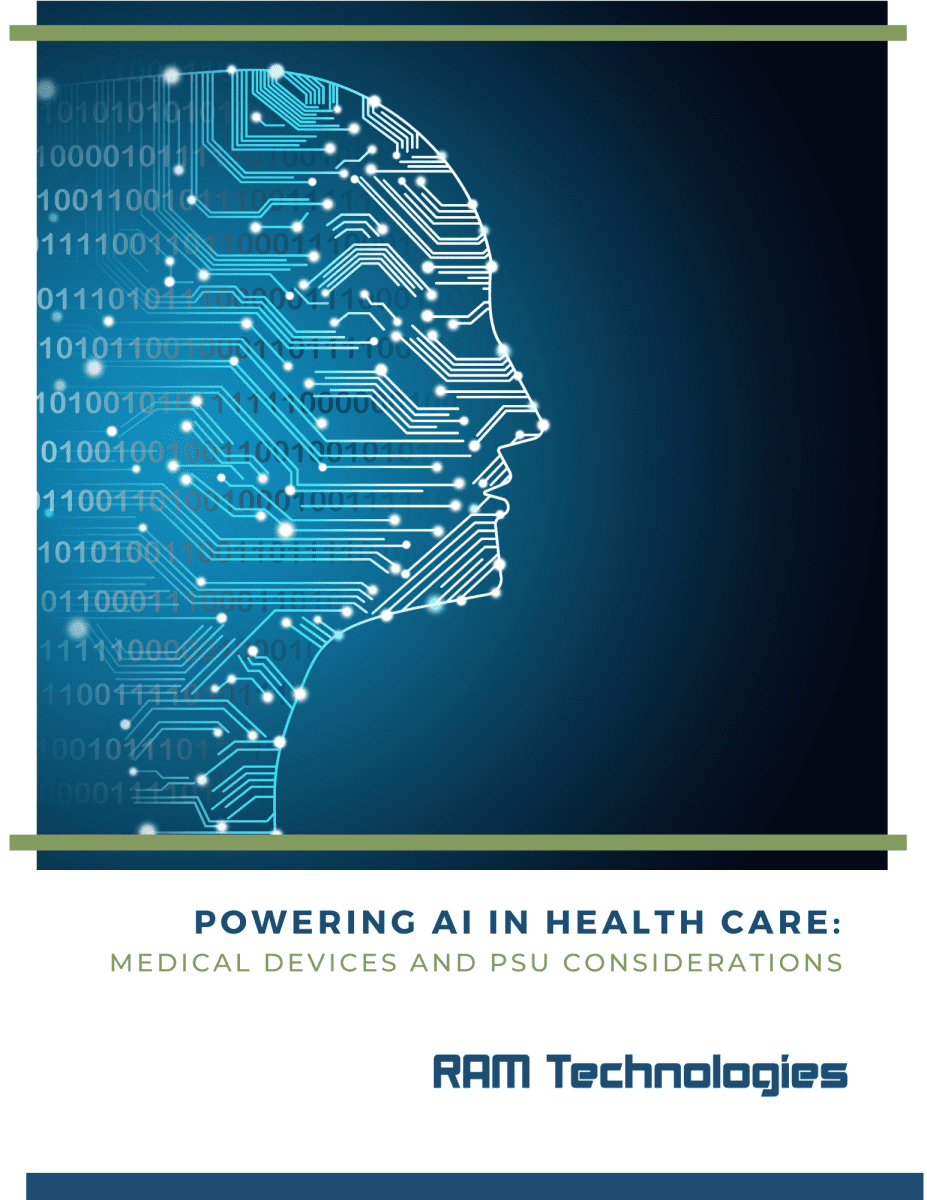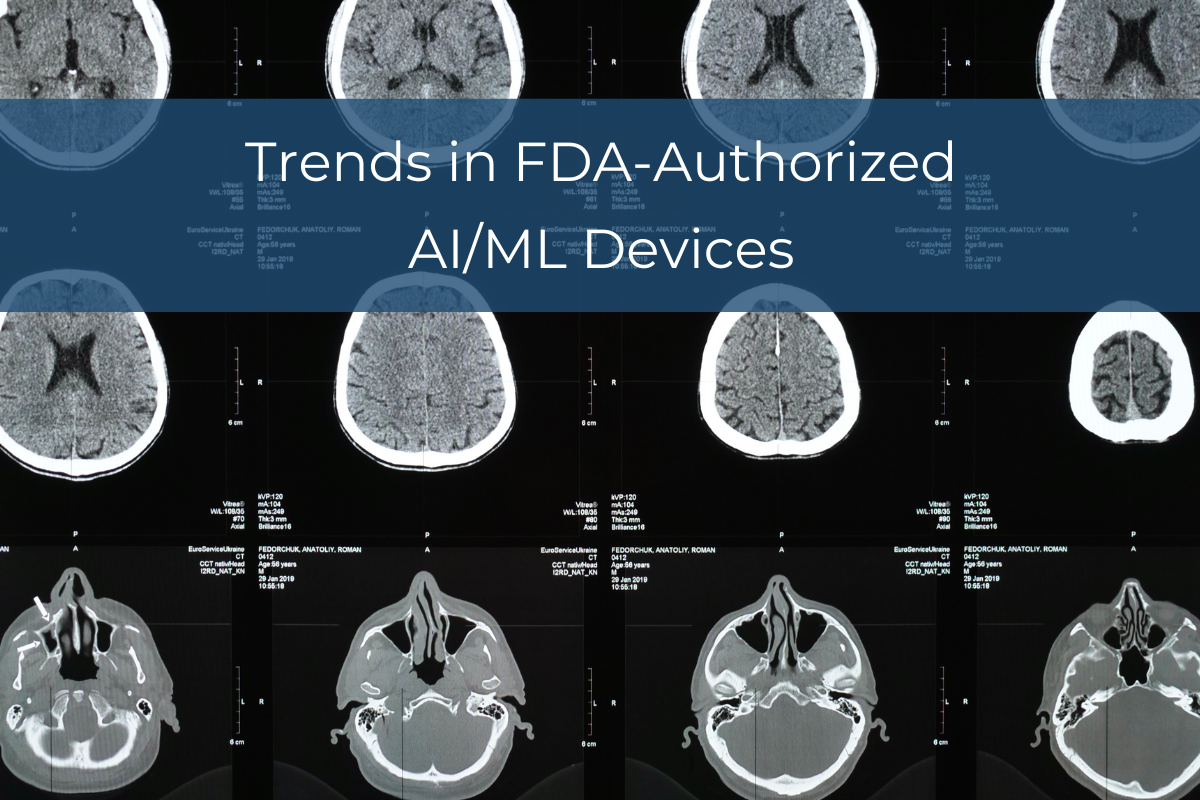As AI/ML technologies continue to evolve and shape the medical device space, the FDA approval process is designed to ensure that equipment on the cutting-edge is as safe and effective as it is innovative.
Most of the medical devices that have been approved for market by the FDA have included real-time imaging or some level of predictive analytics. Because of this, radiology devices have been a very popular segment for AI/ML-powered devices.
While large language models (LLMs) have proliferated the consumer space and many industries, they have yet to penetrate the medical device market. These models are trained to summarize, identify, translate, and even create new content based on information coming from a large dataset. However, as of October 19, 2023, the FDA has yet to approve a device that uses generative AI or LLMs.
Trends in FDA-Listed AI/ML Devices
The FDA has published a list of AI/ML-enabled devices that have met “applicable premarket requirements” to illustrate the medical disciplines currently using these devices, based on information available in marketing authorization summaries.
According to their insights, AI/ML-enabled devices had the highest increase year-over-year in 2020 – with 39% new devices compared to 2019. In more recent years, the increase has slowed, with 15% 2021 and 14% in 2022. The FDA plans to update their list and figures periodically, but so far they have projected that 2023 would see a 30+% increase in new devices, which aligns with a rise in the use of this technology across all sectors.
The vast majority of FDA-authorized AI/ML-enabled devices in 2022 were involved in radiology (122), with cardiovascular (10) trailing behind. Other areas that had one or two approved devices included ophthalmic, hematology, neurology, clinical chemistry, gastroenterology/urology, and ear, nose, and throat.
So far in 2023, the trend for areas of focus in approved medical devices has continued, with 85 radiology devices and 10 in cardiovascular.
Complexity for authorized devices has varied, with some being shallow with less than two hidden layers, and others being deep learning models. Many models being used in these devices have hybrid approaches, with different models serving different functions.
10 Recently Listed FDA-Authorized AI/ML Devices
Based on the FDA’s most recently updated list, these were the last 10 authorized devices:
- Brainomix 360 Triage ICH: This notification tool is designed to provide real-time alerts to clinicians when patients are suspected of having an intracranial hemorrhage by assessing non-contrast CT scans. This can help clinicians decide the appropriate course of treatment for patients experiencing strokes.
- Global Hypoperfusion Index (GHI) Algorithm: Edwards Lifesciences received premarket approval for this algorithm in 2023, which can determine the risk of a global hypofusion event (an event where mixed venous oxygen saturation drops for at least one minute to 60% of below). Generally, the prediction can be made for events that are likely to happen in the next 10-15 minutes. The algorithm is designed for use with patients who are under hemodynamic monitoring using a Swan-Ganz catheter.
- ME-APDS™; MAGENTIQ-COLO™: The Magentiq Eye Automatic Polyp Detection System (ME-APDS) can pinpoint potential mucosal abnormalities during a patient’s routine colonoscopy and can work with standard endoscopy imaging to find areas of potential concern. This can help aid in early detection of colorectal cancer and other gastrointestinal disorders, and should be conducted in conjunction with a study of the cells and tissues.
- Sonio Direct: This software as a service (SaaS) tool can help practitioners achieve quality control in fetal ultrasound exams.
- ANDI: ANDI, which stands for Advanced Neuro Diagnostic Imaging, provides “microstructural white matter imaging” – their diffusion tensor imaging (DTI) can help highlight microstructural changes in the brain and provide more detail compared to traditional imaging techniques.
- UltraSight AI Guidance: UltraSight’s goal is to break down barriers between clinicians and their level of sonography experience, improving access to high-quality cardiac ultrasounds in many different points of care.
- OptimMRI: OptimMRI is trying to improve the neurosurgery process by taking brain magnetic resonance (MR) images and rendering them in 3D, providing more detailed brain imagery that can help surgeons make decisions about how they will plan and carry out procedures.
- BrainLab Devices: BrainLab’s cranial electromagnetic navigation software for surgeries work to make pinless, straightforward procedures possible.
- Irregular Rhythm Notification Feature (IRNF): This feature, available on apple watches, is a software medical application that can take a person’s pulse data and use it to identify potential irregular heart rhythms that may be indicative of atrial fibrillation (AF).
- uOmnispace: Advanced medical imaging software, uOmnispace, allows for viewing, segmentation, and annotation of imaging, enabled by machine learning. Different imaging techniques can be used with these tools, including MRI, PET, and CT.
- syngo.CT Lung CAD (Version VD30): When radiologists are examining a patient’s chest, syngo.CT Lung CAD can help them detect solid pulmonary modules. Instead of being a substitute for current methods, this tool is designed to be adjunctive after an initial read that can assist radiologists in finding regions of interest (ROI).
Because of how closely AI and real-time imaging are tied together, we’re likely to see more FDA-authorized AI/ML-enabled medical devices in radiology coming out in the years to come. While it’s hard to say how far away we are from LLMs and other, more advanced forms of Ai working their way into the medical device space, the more solid trends are here to stay.
Looking to support your AI/ML-enabled medical device? Our PC-based power supply units are built for medical devices and can be sized and customized to fit larger workloads.
To learn more about our PSUs, contact us or check out our supplies page.
RAM Technologies’ power supplies are 60601-1 3.2 certified and meet 60601-1-2 EMC standards. When you’re designing your medical device and need help with a PSU, contact us for details.

Download the AI/ML Summary
Artificial Intelligence and Machine Learning (AI/ML) are changing the medical device landscape. Get a summary of the latest trends and where we think AI/ML can go with medical devices by downloading our guide.
More Resources:
AI Medical Devices and FDA Approval: A Review in the Lancet
Current Trends in the Medical Device Industry
Powering AI in Health Care: Real-Time Medical Imaging and PSUs
